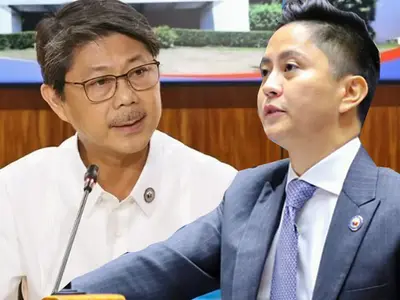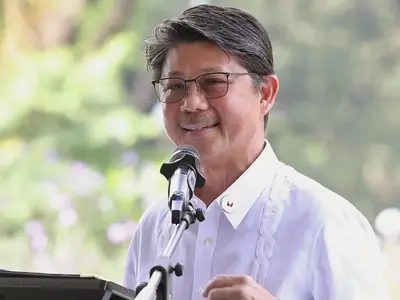
THE House of Representatives will resume regular sessions on Monday after a five-week break, with a clear focus on ensuring the timely enactment of the P5.768 trillion national budget for 2024 and passing the few remaining priority bills of the Marcos administration.
Speaker Ferdinand Martin G. Romualdez underscored the House’s commitment to prioritize the swift ratification of the 2024 spending plan, recognizing its vital role in sustaining government operations and meeting the nation’s need.
The leader of the larger legislative chamber with over 300 members said the ultimate goal is to ensure the budget measure reaches President Ferdinand “Bongbong” R. Marcos Jr.’s desk and is signed by him by the end of the year.
“The budget is the lifeblood of our nation’s progress and development. The House is fully dedicated to the task at hand, ensuring that the national budget is ratified and enacted on time to guarantee the continuity of essential services, support economic growth, and promote the well-being of our citizens,” Speaker Romualdez said.
After extensive deliberations, the House on Saturday submitted to the Senate the approved 2024 General Appropriations Bill (GAB) with P194.5 billion realignments for security, inflation protection, and food security.
Also during the resumption of session,
Speaker Romualdez said the House will tackle other equally important bills, including the remaining 11 key legislative priorities outlined mostly in both the Legislative-Executive Development Advisory Council (LEDAC) and President Marcos’ State of the Nation Address (SONA) last July.
Under LEDAC, the pending bills are the Department of Water Resources and Services and Creation of Water Regulatory Commission, Tatak-Pinoy (Proudly Filipino) Act, Blue Economy Law, all of these three were already approved by the respective mother committees and are waiting for comments of the House Committee on Appropriations; Amendments to the Electric Power Industry Reform Act (EPIRA) or Republic Act (RA) No. 9136, Government Procurement Reform Act, and Amendment of the Cooperative Code, are all under committee/technical working group (TWG); and Budget Reforms Modernization, National Defense Act, New Government Auditing Code, and Philippine Defense Industry Development Act, all of these are under committee deliberations.
For SONA, seven bills are still pending,
but six of these were also listed as LEDAC measures.
The six SONA measures which are also part of LEDAC bills are the Department of Water Resources and Services and Creation of Water Regulatory Commission, Tatak-Pinoy (Proudly Filipino) Act, Blue Economy Law, New Government Auditing Code, Government Procurement Reform Act, and Amendment of the Cooperative Code.
The seventh SONA bill is Motor Vehicle User’s Charge/Road User’s Tax or a total of 11 LEDAC and SONA bills.
Speaker Romualdez expressed his commitment to ensuring the timely passage of the remaining priority bills, underlining their vital contribution to resolving significant concerns and improving the welfare of Filipinos.
“We are resolute in our mission to fulfill our legislative duties and responsibilities,” Speaker Romualdez said. “Our primary focus continues to be the legislative agenda outlined by President Marcos, and we are fully committed to working diligently to pass these vital bills for the betterment of our nation.”
Of the 17 SONA 2023 priority measures, one has been enacted into law, one has been ratified by the bicameral conference committee, and eight have been approved by the House on the third and final reading.
The Automatic Income Classification Act for Local Government Units has already become law, and the Ease of Paying Taxes bill has successfully completed the bicameral conference process. Notable bills like the Excise Tax on Single-Use Plastics and the VAT on Digital Services have passed the third reading.
Speaker Romualdez, meanwhile, emphasized the importance of cooperation between the legislative and executive branches through the LEDAC, recognizing that unity and collaboration are essential in developing effective policies and reforms.
Out of the 57 LEDAC priority measures, eight have successfully become law, including the SIM Registration Act, Postponement of Barangay/SK Elections in 2022; and the Agrarian Reform Debts Condonation; while two, namely, the Ease of Paying Taxes and Amendment to the Build-Operate-Transfer (BOT)/Public-Private Partnership (PPP) Code, have achieved ratification by the bicameral conference committee.
A remarkable 35 bills have passed the third reading, encompassing significant initiatives like the Virology Institute of the Philippines, Passive Income and Financial Intermediary Taxation Act (PIFITA) (Package 4), and the National Disease Prevention Management Authority, among others. Other measures are currently pending at the committee level.



